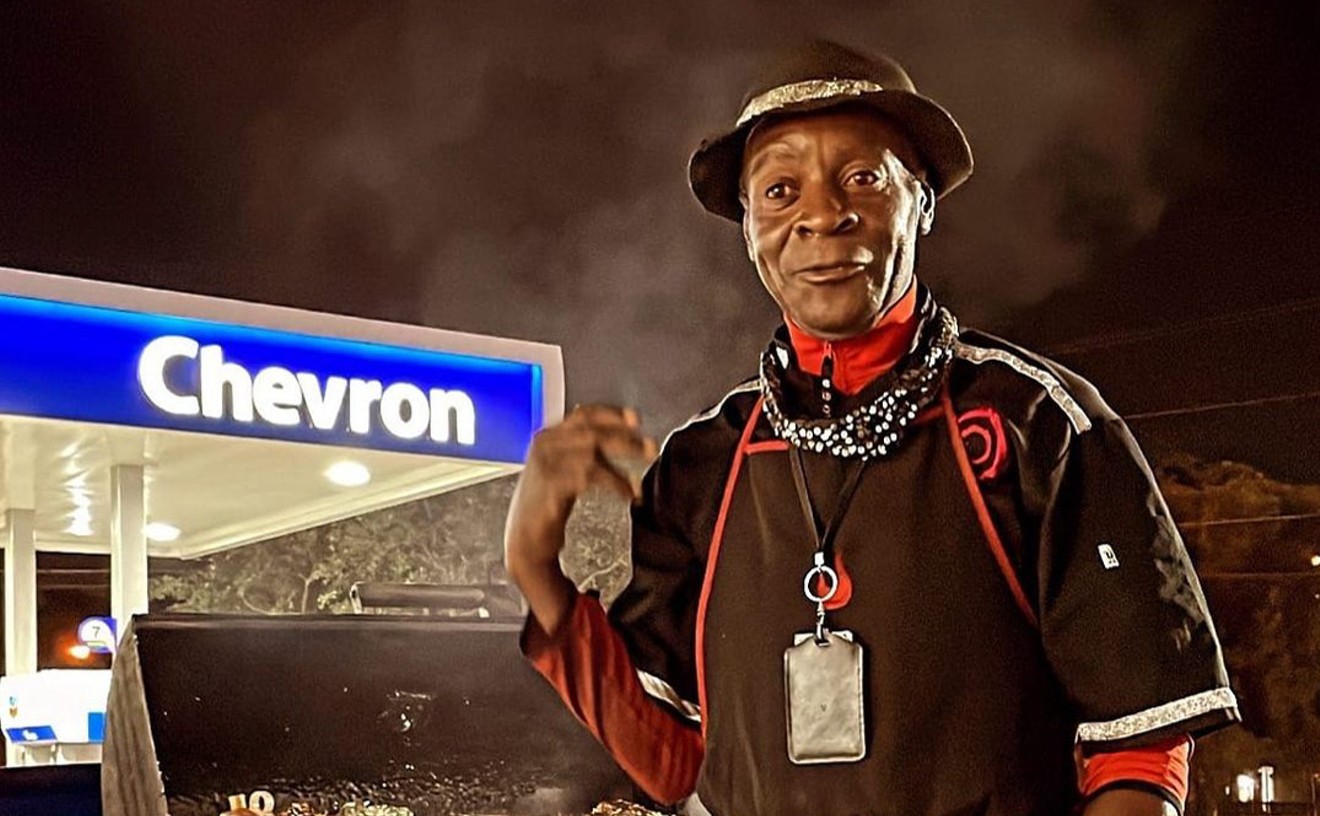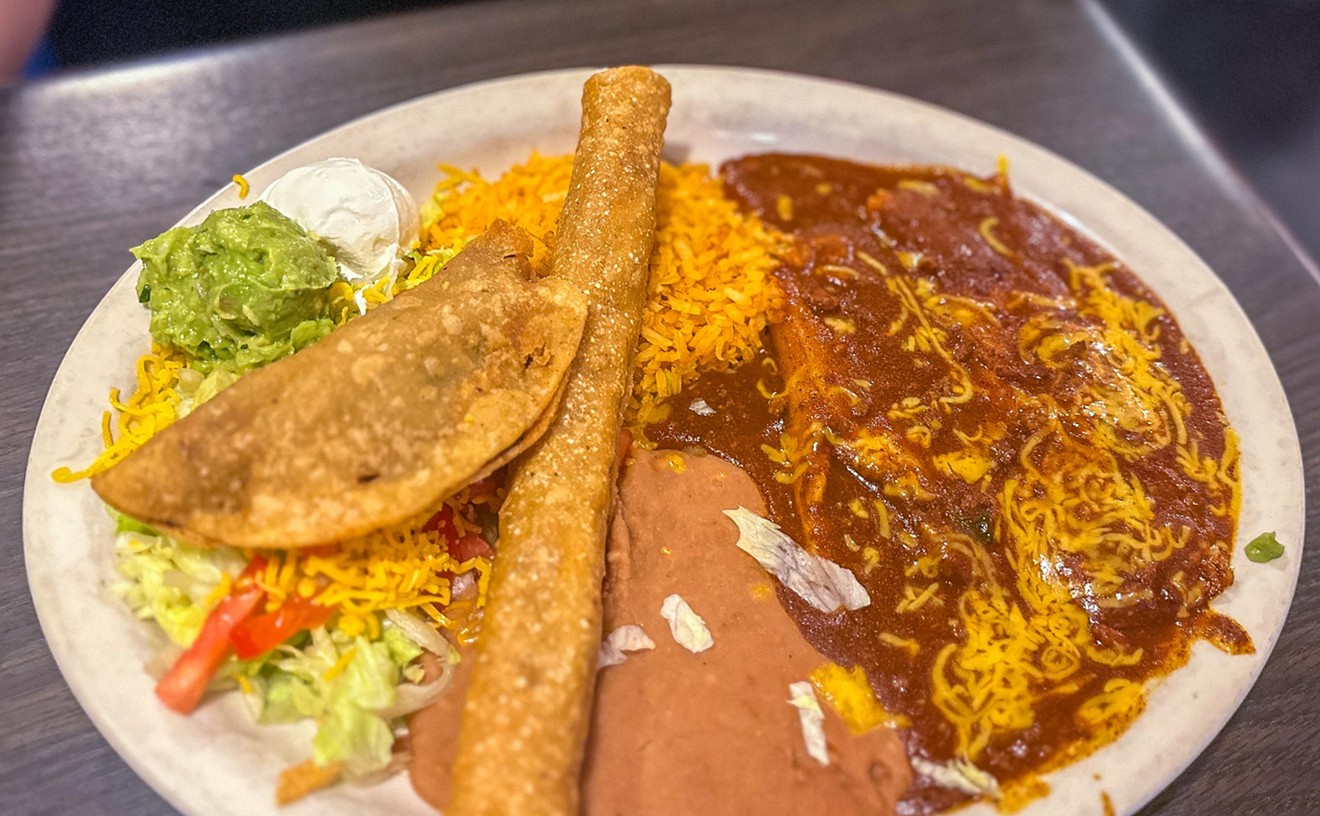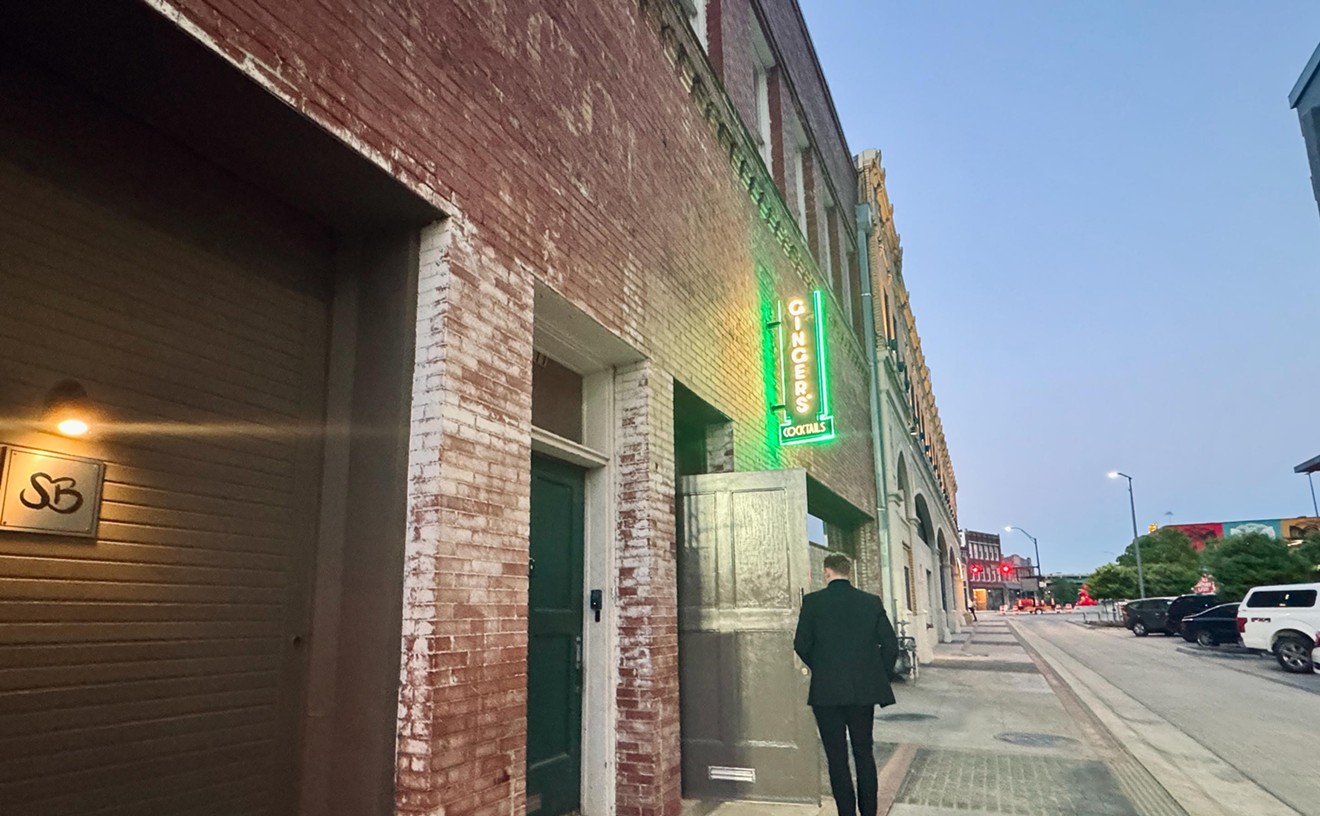Football is a confusing sport. To some it's a metaphor for war, satiating our bloodlust in a confined space--a Coliseum for the modern world. To others the sport reflects some higher ideal, a secular religion for the masses. Still others consider it a thread, frayed but still intact, connected over time and evolution to primeval instincts of violence. A few even call it a game. The Burning Question crew, however, thinks of football as just another excuse to drink, a valid reason to drop everything and traipse down to the nearest sports bar for large doses of both alcohol and helmet-pounding fury.
Now bear with us for a moment, for this week's Burning Question requires elucidation. Football is not confusing, really. The sport's relationship to American culture, on the other hand, is completely bewildering. As a nation we generally eschew violence, but we firmly believe football teaches character. We strive toward gender equality, but happily objectify women on the sidelines of every game, from high school to the Super Bowl. Welfare disturbs us, but we willingly subsidize stadiums and other facilities to house billionaire owners and millionaire athletes. Indeed, cities across Texas will spend more than $1 billion in hard-earned taxpayer dollars on the construction of a handful of stadiums and arenas between 1993 and 2003. Sure, a University of North Texas report claims that the Cowboys and Texas Stadium generates $455 million in economic activity and 11,000 jobs. However, thorough studies by Roger Noll at Stanford University, Robert Baade of Lake Forest College and Mark Rosentraub from Indiana University all dismiss as mere fabrications the idea that stadiums and teams bring untold wealth to cities. Back in 1995, while Cleveland lavishly spent taxpayer money on new football and baseball stadiums, the city's public schools fell into receivership.
Football, as we said, drives one to drink.
By now you probably sense that almost everything written about football--the metaphors, the character-building, etc.---is meaningless drivel, unless it discusses the only substantive things associated with the sport: economics and alcohol. With that in mind, we turn to this week's Burning Question. We expect the Cowboys to lose, but how do the losses affect sports bars?
"A losing season doesn't affect us at all," says A.Z. Baker, manager of Frankie's on McKinney. "We have such a broad base of fans that it doesn't matter." Many sports bars, in fact, host watch parties for fans of other NFL teams. Buffalo Bills fans, for example, stampede to--oh, the football metaphors--Stadium Café in Addison. "Our largest following is the Bills," explains manager Jay Evans, "then the Cowboys, if they're winning." When Dallas puts a winning team on the field, business picks up at sports bars around the area, but the influx of fans supporting teams nationwide and access to every game through digital satellites mitigates the business lost when the 'Boys play like Romanian clerics. Maybe worse than Romanian clerics; we've never actually seen them play. Managers at several area sports bars notice the difference when the Cowboys stumble through a miserable season, certainly. The fan base, however, is cosmopolitan enough to pick up the slack.
Simply put, when the Cowboys lose, they just don't matter that much.
Dallas' reputation as a fair-weather city resonates with sports bar managers. "I've been here when we were winning and the Cowboys were on every screen," recalls Dina Griffin at Longshots Sports Grill in Addison. "Now we're lucky if we put them on one screen." No one complains, she says, about the paltry coverage. "If you go anywhere else, the bars would be packed before and after a game," Evans adds, comparing Dallas with committed football towns. "Obviously if the Cowboys were on fire it would pick up," Baker concedes.
Still, the football season alone generates quite a bit of business for area sports bars, no matter how many turf toe incidents, criminal investigations or rookie quarterbacks local fans suffer through. Kenny Clance at Bleachers Sports Grill in Garland notes that the summer lunch crowd amounts to 30 or 40 people on a Sunday. Football season doubles that amount and brings in additional people who just sit and drink and watch a game or two. "Baseball season is our worst time of the year," Griffin says. During the summer, Longshots staffs one waiter on Sunday afternoons. On football Sundays, however, that number jumps to five. And, Clance points out, "people tip better when their team is winning."
Like we said, football is simple. The rest is confusing.
In his book Major League Losers, Rosentraub contends that franchise owners overestimate a team's economic impact dramatically, often by tenfold. Most of the money fans spend at a stadium, he writes, would still be spent if the team never existed--on movies, restaurants, and other forms of entertainment. A professional sports team never accounts for more than half a percent of jobs or salaries in any one region. Restaurants, on the other hand, create 7 percent of all jobs in an average metropolitan area. Yet Steve Craft, vice president of Baby Doll's, a strip club on Northwest Highway (naturally), points out that club attendance jumps on home football weekends. "Anything that gets the general public out, any game, we see an increase in business," he says.
This week's Burning Question, then, requires a three-part answer. Weekend gatherings at sports bars increase dramatically during the football season, whether the Cowboys play at home or on the road. Losing dents that flow, but fans still turn out to watch other games. But when the Cowboys play well, Dallas sits up and takes notice.
Just what they take notice of, well, that's another question.










